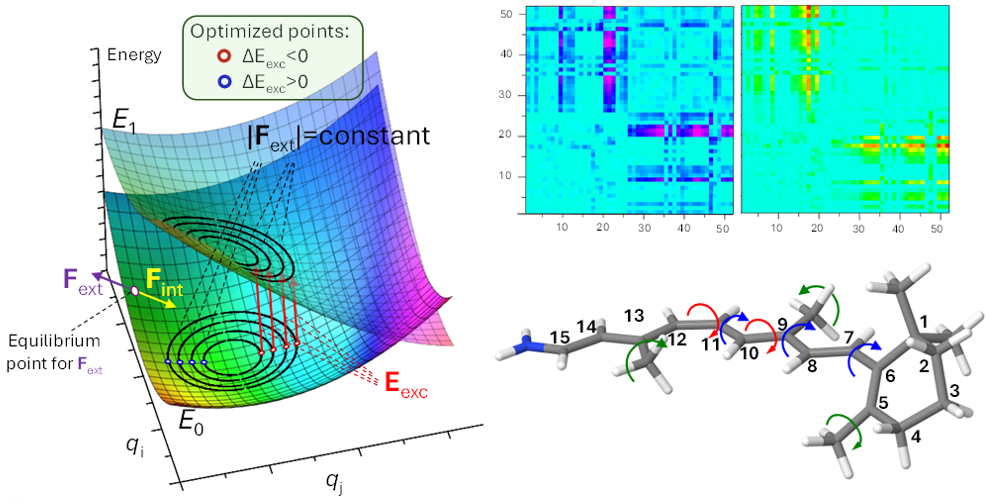

The research activity of the Reactivity and Molecular Structure (RESMOL) group focuses on the theoretical study of chemical processes both in the ground state and in the excited state, particularly in the mechanical and dynamic aspects of these processes. The group develops theoretical and computational models for the study of various molecular processes, as well as their computational implementation through the development of specific software.

Mechano-Photochemistry
Mechano-photochemistry focuses on the control of photoinduced reactions through the application of external mechanical forces.

Computational Photochemistry and Photobiology
Computational photochemistry uses theoretical methods and simulations to study light-induced chemical reactions. It helps predict excited-state properties, reaction pathways,... providing insights into photochemical behavior at the molecular level.

Computational study of Coordination Compounds
Theoretical methods to analyze the structure, bonding, and reactivity of coordination complexes. These studies help predict electronic properties, stability, and spectral features, aiding in the design of new metal-based materials and catalysts.